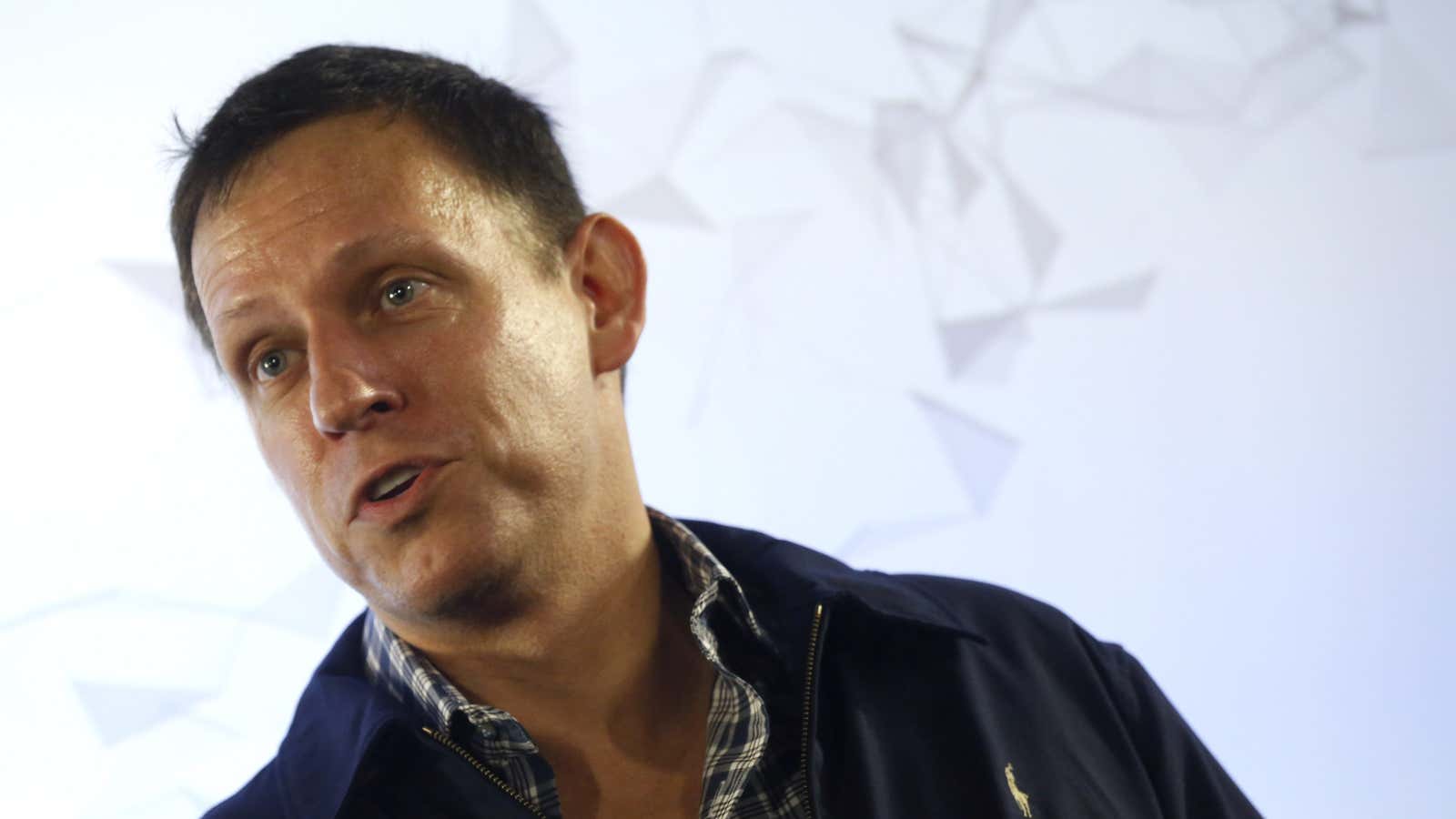Peter Thiel owes it all to Silicon Valley. The Stanford lawyer-turned-PayPal founder rose to unimaginable riches on the internet boom. He co-founded PayPal in 1998 before placing big bets on Facebook and LinkedIn. Today, the billionaire investor, after backing Donald Trump’s presidential candidacy in 2016, wields outsized influence far beyond the tech world.
But as for Silicon Valley, he’s done. Thiel already moved his home and offices to Los Angeles earlier this year, and is increasingly vocal about his disaffection with his adopted hometown (Thiel, 51, was born in Frankfurt, Germany).
On Nov. 1, during a live broadcast of the New York Times annual DealBook conference, Thiel said he felt Silicon Valley was no longer the same place it once was. “It feels like it has somehow jumped the shark,” he told interviewer Andrew Ross Sorkin. “It’s not the wisdom of crowds. It’s the madness of crowds,” slamming the region’s “negative network effects,” San Francisco’s “dysfunctional” city government, and runaway housing prices.
When asked if he was betting against Silicon Vally over the long-turn, Thiel said he was looking to other regions. “On a relative basis, I believe we should be investing more outside Silicon Valley than inside Silicon Valley,” he said.
That’s a u-turn from 2005 when Thiel gave a talk at Stanford estimating there was a 50% probability the next Google would originate from within five miles of the university campus. Facebook turned out to be that $100 billion company, Thiel said (the company was actually founded in Cambridge, Massachusetts, in 2004 but relocated to Menlo Park, CA later that year).
Today? Thiel said he would give a very different prediction: “If I was to give the same speech today, I’d say way less than 50% [chance] within a 50-mile radius.”
Where is Thiel putting his money? Through his venture firm Founders Fund, as well as his personal money, Thiel has bet heavily on startups working on cannabis, blockchain, cryptocurrency, and biotech, as well as co-founding the data analytics company Palantir, which has worked closely with the US military and intelligence agencies.
